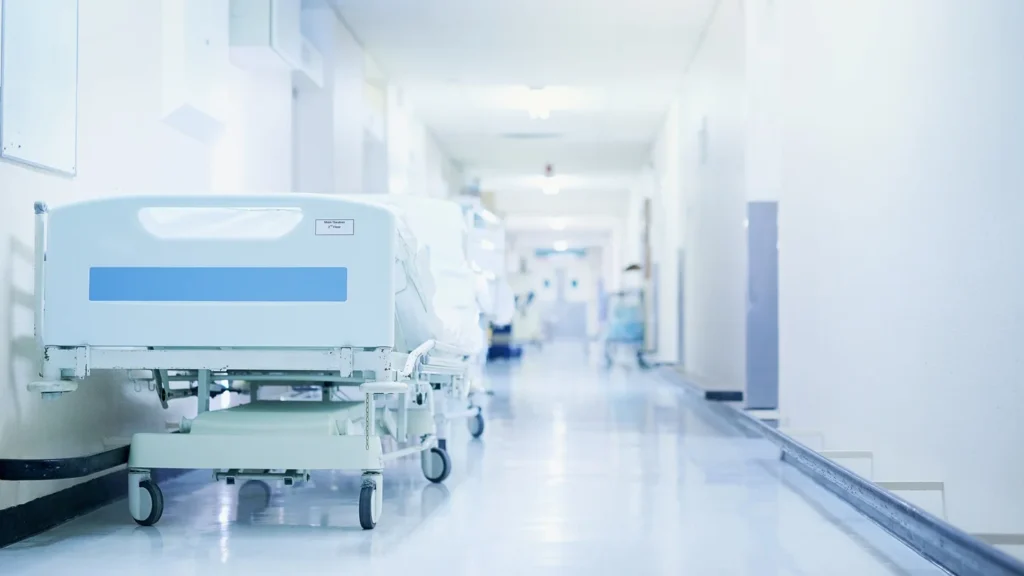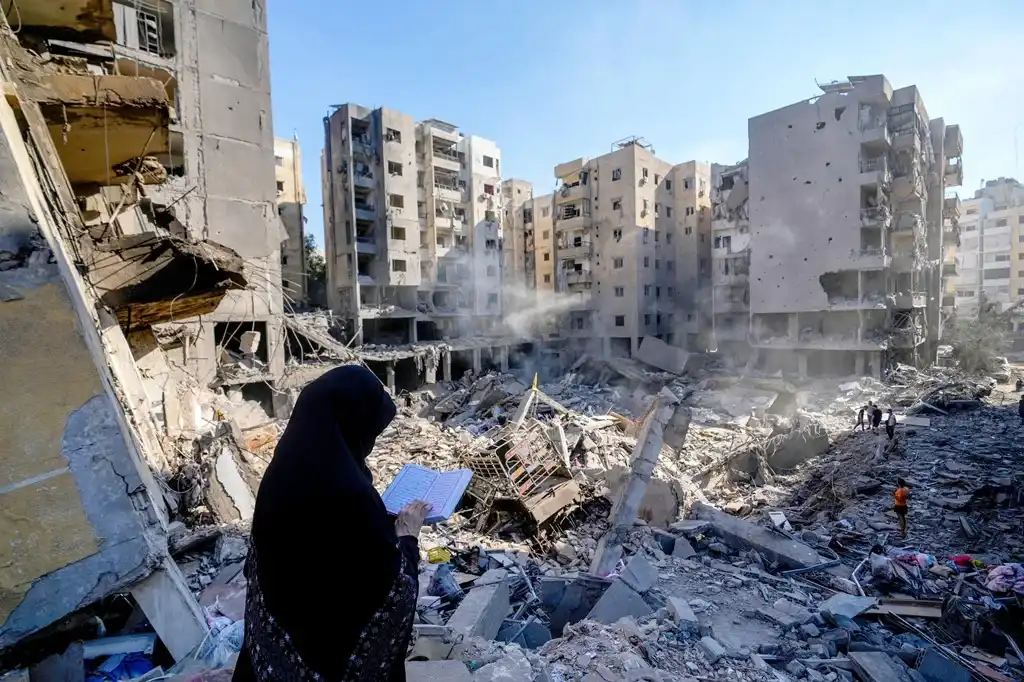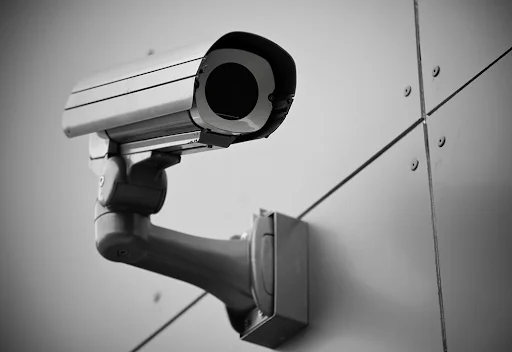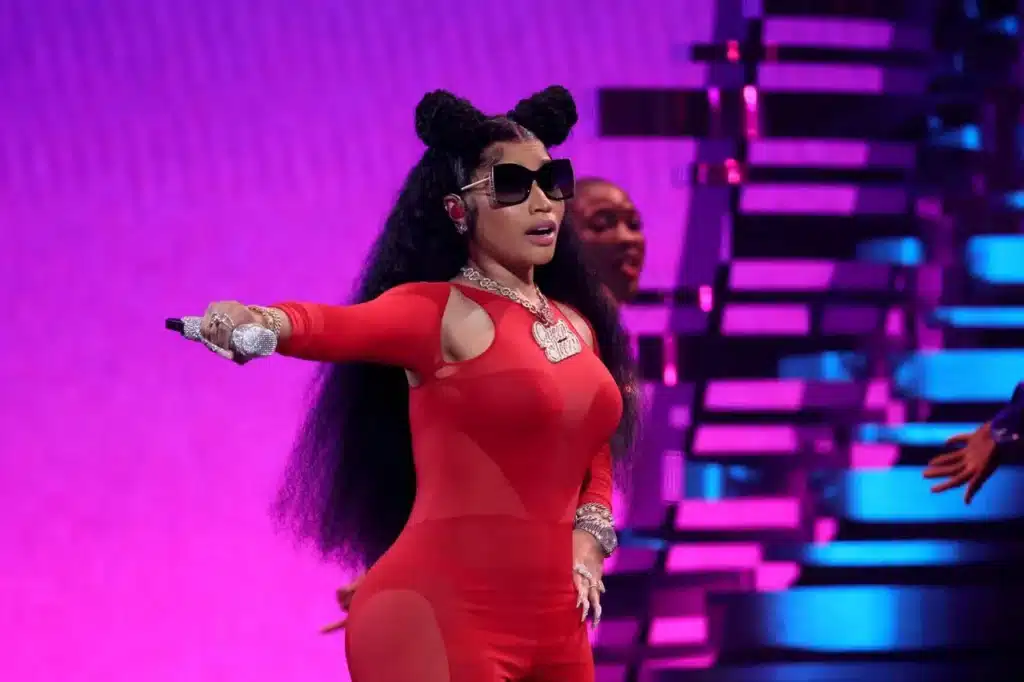Is Ireland Lebanon’s New Ally? What Today’s Meeting with the Lebanese Prime Minister Means for Both Nations
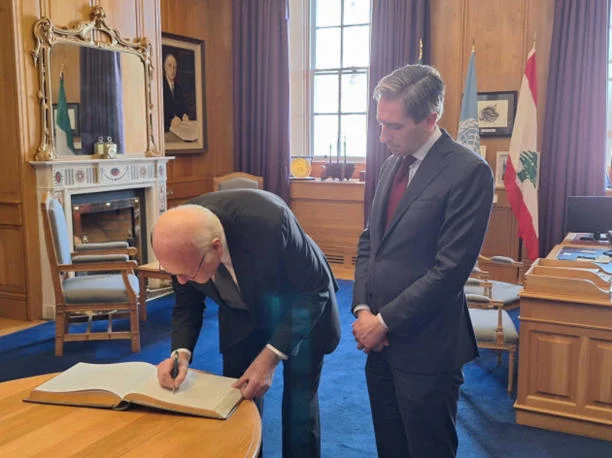
Introduction
In a noteworthy diplomatic gesture, Taoiseach Simon Harris will hold a meeting on Lebanese Prime Minister Najib Mikati at Government Buildings in Dublin. This meeting takes place in the wake of recent rising hostility aggravated by Israel and the militant group Hezbollah which has resulted in damage and displacement of people especially in the capital Beirut and the southern part of Lebanon. Many of the Lebanese citizens have either died or been forced away by the air raids and little blitzes of ground forces. This situation has acted as a knife to an already weak Lebanon and last if they were the case, even endangered the peacekeepers including the Irish contingents in the United Nations deployed to the Interposition Force in Lebanon (UNIFIL).
Peacekeepers are hybrid-situational in word with heuristics of control to Ireland’s humanitarian engagement in Lebanon as almost 400 peacekeepers are deployed in the region and recently that the country contributed 7 million Euros in humanitarian assistance. High levels of tensions and humanitarian need indicate that the meeting between Harris and the Lebanese Prime Minister is taking place at a time when Ireland remains committed to peace, security and respect for human dignity in the region. The leaders’ meeting will touch on areas such as aid and other humanitarian issues, security in the region, respect for international laws and economic cooperation.
Background of Ireland-Lebanon Relations
Historical Context
Ireland’s association with Lebanon goes back to the year 1978 when Irish soldiers joined the United Nations Interim Force In Lebanon (UNIFIL) and were sent to the Southern part of Lebanon to ensure peace after the conflict between Lebanon and Israel. This signalled the start of a long standing commitment of the Irish to peace processes in the region, with the Irish defence forces active in the protection of civilians and in operations monetarily retraining support to affected regions. Throughout the years, the Irish forces have shown a great deal of spirit and commitment that has turned out to be important in the security of the communities situated along the borders in Lebanon.
This trend is in evidence also in the fact that Ireland has actively lobbied for the peaceful settlement of conflicts in the Middle East as well as supporting the international peace keeping mechanisms for that purpose. Thus, the historical ties that have existed between Ireland and the Government of Prime Minister Lebanons assists further explain the presence of operational engagements as well as underlying principles of humanitarian assistance and support for peace in the region.
Recent Engagements and Initiatives
Over the past several years, Ireland has played a pivotal role in assisting Lebanon, particularly now when the country Is facing a deepening economic crisis and hosting more than 1.5 million refugees. Numerous millions have been given by Ireland in relief efforts, including a recent €7 million pledge for relief purposes. Meanwhile, Tánaiste Micheál Martin, Ireland’s Foreign Minister, alongside French President Emmanuel Macron announced more funding to assist the diaspora and highlighted once again the willingness of Ireland to assist Lebanon’s rehabilitation.
Such financial investments demonstrate that Ireland is not only committed to emergency assistance in response to the current crisis, but also to addressing the longer-term challenges of reconstruction and stabilisation in Lebanon. These undertakings are consistent with Ireland’s more broad ambitions in the landscape of promoting peace, security, and humanitarianism.
Key Agenda Points of the Meeting
Regional Security and Cooperation
One of the key issues to be discussed in this meeting will be the current regional crisis and how Ireland plays a key role in peacebuilding. The recent clashes between Israel and Hezbollah have put not only civilians at risk, but also the safety of the international forces in deployment in Lebanon. Troops from Ireland have been threatened and injured as well been told to leave earmarked circles due to the nature of violence and the rising threat pattern. According to reports, Taoiseach Harris is likely to react to this with discontent, particularly when it comes to the airstrikes that hit the southern part of Beirut, which is a city mostly populated.
Harris is also going to stress once again the support of Ireland for the United Nations Security Council resolution 1701, which calls for an immediate ceasefire of hostilities between Israeli troops and Hezbollah fighters and is legally binding. This also provides territories that are not allowed for either parties to go and thus limit further hostility. In so doing, Harris draws attention to the fact that the resolution puts emphasis on the need for peace and respect for international regulations which is one of the objectives that Ireland shares with the Lebanese Prime Minister.

Economic Cooperation and Trade Opportunities
Economically, it can be said that there are numerous avenues for economic cooperation between Ireland and Lebanon despite the current state of war. The leaders are expected to discuss and encourage bilateral commerce, especially in industries like technology, agriculture and infrastructure, which would be advantageous to both countries. For Lebanon, enhancing trade relations with Ireland is seen as a means of redressing an economic downturn and crisis, while for Ireland, such relations help grow the economy in the Middle East. This could engender a win-win situation for both countries in terms of trade and also encourage foreign direct investments.
Addressing Lebanon’s Economic Recovery
Lebanon is currently undergoing the most disastrous economic crisis within the last few decades that is characterised by rampant inflation, high rates of unemployment and extreme poverty. Taoiseach Harris is expected to talk about what role Ireland will play in mitigating the effects of this economic downturn, perhaps through development aid and administration policy support. Ireland’s history of resilience and recovery would be useful in aiding Lebanon’s efforts in the strengthening of such processes.
Moreover, it is possible that Harris will highlight the importance of engaging international partners better in resolving the crisis and working towards development with a particularly strong emphasis on the assistance that Ireland is willing to provide to the Lebanese Prime Minister and his government during the reconstruction process.
Humanitarian and Refugee Support
Lebanon’s resources and infrastructure are being put under immense pressure due to the influx of more than 1.5 million Syrian refugees. Focusing on this context, Harris will mainly consider how humanitarian assistance in general, and more specifically, health and education for the refugees can be improved between Ireland and Lebanon. Given Ireland’s background in supporting the implementation of international humanitarian action, there is a potential role for Ireland in helping Lebanon manage its refugee crisis on a practical level.
During this meeting, discussions are expected to be held on how to ensure that Irish assistance would not only be focused on covering the most pressing needs but also on overall improving the situation of refugees in Lebanon, which is in line with many of such aid providers’ compassionate and helping the needy communities’ values. This resonates with the interests of the Lebanese Prime Minister.
Environmental and Green Energy Collaboration
Ireland and Lebanon have very similar attitudes towards issues such as climate change and environmentalism. In recent times, there have been improvements in the use of green technology and alternative energy resources such as wind and solar power in Ireland, which may help Lebanon on its environmental journey. This meeting may include discussions on sustained joint efforts in sustainability clean energy projects and climate resilience programs.
Both countries can take advantage of understanding and sharing knowledge in the area of green energy development which satisfies the need for economic growth with respect to the environmental issues at hand and also presents economic opportunities through green investments and job creation, which is also of interest to the Lebanese Prime Minister.
Expected Agreements and Memoranda of Understanding (MOUs)
Due to the outcome of the meeting, it is expected that Taoiseach Harris and Lebanese Prime Minister Mikati will pursue signing several important agreements and MOUs, possibly in the areas of trade, environmental protection and social outreach. Such agreements are seen to lay the groundwork for Ireland-Lebanon relations in the future years to come, and promote further integration between the two countries as well as help address the common issues.
| Agenda Item | Details | Expected Outcome |
|---|---|---|
| Regional Security | Addressing recent violence, UN resolution 1701 compliance | Reaffirm peace commitments, protect peacekeepers |
| Economic Cooperation | Focus on trade in tech, agriculture, and infrastructure | Growth in bilateral trade and foreign investment |
| Refugee and Humanitarian Aid | Address Lebanon’s needs for refugees, health, and education support | Enhanced aid channels and long-term support structures |
| Environmental Collaboration | Explore green energy partnerships, clean technology sharing | Joint initiatives in sustainability, job creation |
Breakdown of Irish Humanitarian Aid to Lebanon (2023-2024)
- Refugee support: 40%
- Healthcare initiatives: 20%
- Infrastructure repair: 15%
- Education for displaced communities: 15%
- Emergency relief: 10%
Diplomatic and Economic Implications for Both Nations
Benefits for Ireland in Expanding its Middle Eastern Presence
For Ireland, engaging in a more active relationship with Lebanon presents a chance to extend its diplomatic wings in the Middle East region. This strategy is in line with Ireland’s objectives of active promotion and enhancement of peace… and stability given that it places Ireland at the feasible hub of the EU which will advocate for a positive engagement in the region. Also, encouraging and allowing for a stronger Irish component in the Middle East will invariably bring in trade, investment and even cross-cultural relations in the area which in turn expectedly will result in economic turnarounds especially with the cooperation of the Lebanese Prime Minister.
Benefits for Lebanon Through EU Partnerships
Lebanon, on the other hand, would benefit greatly from the joining of Ireland into the European Union. A closer relationship with Ireland could benefit Lebanon’s outreach to the European Union and its resources for instance, funding or humanitarian or policy assistance. With As the EU ins advocate for Ireland, the latter is likely to receive more support and assistance that would be critical to her rehabilitation and transformation and to the relationship with the Lebanese Prime Minister.
Mutual Benefits in Global Forums like the United Nations
In their active role in the United Nations, Ireland and Lebanon may also be able to strengthen their relationship by promoting each other’s interests. This cooperation would empower both nations in advocating for peacekeeping missions, protection of human rights, and promotion of respect for international humanitarian law. To build or enhance their capabilities within United Nations structures, issues such as sharing bilateral agreements on refugees rights, climate issues, and ending crises must also be addressed by Ireland together with the Lebanese Prime Minister.
Potential for Cultural Exchange Programs
Also, like most countries, even Ireland and Lebanon have a rich history shaped by diverse cultures which gives an interesting scope for cultural exchange programs. Student exchange programs, joint artistic ventures and tourism clusters are some of the projects that may enhance the bonds between these two nations. These cultural interactions do not only create bonds among the citizens but also build a sturdy framework for the foreign relations policies as will be appreciated by the Lebanese Prime Minister.
Impact on Trade and Investment Opportunities
The enhancement of diplomatic relations between Ireland and Lebanon could in turn be beneficial to the economy of both countries due to the increased trade and investment prospects that would follow. Irish investments on the other hand will be invaluable to the Lebanese economy, particularly in the development of industries such as IT, education and other sustainable growth initiatives. On the other hand, entering into the Lebanese market is highly beneficial for Irish companies as it opens doors to a new geographical territory that has great economic potential and growth opportunities.
Broader Regional and Global Implications
Impact on EU and Middle Eastern Relations
The bilateral ties between Ireland and Lebanon may by themselves stand as an example of the present and future relations between the EU and the Middle East regions. It shows how diplomacy, humanitarian assistance as well as economic interaction plays a role in bringing about stability to the region. In furthering its bonds with Lebanon, Ireland extends its hand not only to the country but also the entire Middle East to promote peaceful coexistence. Other countries in the EU may follow suit in their foreign policy undertakings.
| Category | Details | Impact |
|---|---|---|
| Irish Peacekeepers in UNIFIL | 400 deployed in Lebanon | Promotes security and stability in Southern Lebanon |
| Humanitarian Aid | €7 million pledged recently | Supports displaced populations and relief efforts |
| Historical Involvement | Since 1978 with UNIFIL | Long-term commitment to peace in the region |
Potential Inspiration for Similar Diplomatic Efforts
This meeting’s results may influence other countries’ members to adopt a radical diplomacy policy within the European Union and elsewhere towards conflict situations. The EU-IRISH Model on humanitarian assistance, conflict resolution and peace restoration may, as it has been discussed in relation with the PM of Lebanon, be applied as a peace building capacity in other regions as well.
Conclusion
The meeting between Simon Harris and Najib Mikati tonight is yet another indication of Ireland’s commitment to humanitarian, peaceful and international development. Expectations from humanitarian assistance to MOUs in relation to trade and green energies are practical steps towards rebuilding Lebanon, securing the safety of peacekeepers and preparing for a better tomorrow. Such strengthened partnership bears hopeful prospects for the future of Ireland and Lebanon, based on mutual devotion to peace, security and development.
FAQs
1. What is the purpose of the meeting between Taoiseach Simon Harris and Lebanese Prime Minister Najib Mikati?
The meeting aims to address recent escalations in violence involving Israel and Hezbollah, discuss humanitarian aid, regional security, economic cooperation, and reinforce Ireland’s commitment to peace and stability in Lebanon.
2. Why is Ireland involved in Lebanon’s peacekeeping efforts?
Ireland has a long-standing relationship with Lebanon, starting with Irish participation in the United Nations Interim Force in Lebanon (UNIFIL) since 1978. This commitment highlights Ireland’s dedication to peace and security in the region.
3. How does Ireland assist Lebanon economically and humanitarianly?
Ireland provides financial aid, such as a recent €7 million commitment to humanitarian assistance, and supports Lebanese economic recovery by facilitating international aid and collaboration in key sectors.
4. What impact has the Israeli-Hezbollah conflict had on Lebanon?
The conflict has led to severe displacement, destruction in areas like Beirut and southern Lebanon, and threats to international peacekeepers, including Irish UNIFIL forces.
5. Will there be any formal agreements signed during this meeting?
Yes, Simon Harris and Najib Mikati are expected to sign memoranda of understanding (MOUs) in areas like trade, environmental protection, and social outreach to solidify Ireland-Lebanon relations.
6. How does this meeting affect EU-Middle Eastern relations?
The Ireland-Lebanon partnership highlights a diplomatic approach that other EU countries might follow, strengthening regional stability and encouraging similar humanitarian and peacekeeping efforts.
LATEST NEWS
DISCOVER MORE

